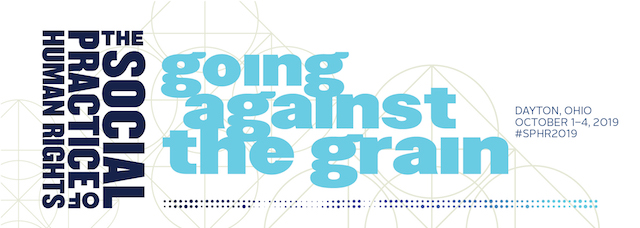Location
Innovations in Economic and Social Rights
Start Date
10-3-2019 9:00 AM
End Date
10-3-2019 10:30 AM
Keywords
Fiscal citizenship, tax justice, tax reform, human rights
Abstract
According to the World Inequality Report 2018 (WID 2017), Brazil is one of the few countries that has not recently displayed an increase in income inequality, having instead sustained it on persistently very high levels, actually composing the world’s “inequality frontier”. While such levels of inequality may be partly attributed to poor distribution of property rights, human capital endowments, and specificity of labor relations, a significant part of it is undoubtedly due the national fiscal system’s reduced distributive capacity, compromised by one the worst taxation systems in the world. Occupying the 184th position out of 190 countries in the World Bank’s (2019) Paying Taxes ranking, Brazilian taxation relies largely on several consumption taxes, marked by extremely complex rules, differential rates, cascading incidence and a disproportional weight in the composition of the country’s tax burden. As a result, the country experiences fiscal impoverishment at the lowest income ranges in spite of sophisticated and efficient inclusion policies – such as the world renowned Bolsa Família cash-transference program –, as well as other extra-economic taxation-caused forms of exclusion, such as entrenched privileges to the well-off, discrimination of consumption patterns, and the political alienation of tax-payers. While addressing this condition may seem an obvious necessity, the approach that perhaps best contemplates human rights in different dimensions may - somewhat counter-intuitively, but nevertheless suited to the peculiar context – consist of the ‘liberal’ policy standards of economic efficiency and isonomy informing an overhaul of consumption taxation into a unified and single-rate tax. This proposal, however, clashes frontally with socially-oriented constitutional principles and tax doctrines.
Author/Speaker Biographical Statement(s)
Gustavo Voeroes Dénes is an MSc candidate in Law and Development at the São Paulo Law School – Fundação Getúlio Vargas, an economic affairs assistant at the General Consulate of Hungary in São Paulo, and a research affiliate at Centro de Cidadania Fiscal. Presently, he researches human rights and fiscal justice in relevance to Brazil’s consumption taxes. Gustavo holds a BA degree in Economics (University of São Paulo) and an MA in Development Studies (ISS – Erasmus University of Rotterdam), having also pursued specializations in International Development (CIDIN – Radboud University of Nijmegen) and in Hungarian Language and Culture Studies (Balassi Institute, Budapest). Gustavo has professional experience in macroeconomic monitoring, international business consulting, translation, NGO program management, and human rights monitoring and evaluation. Voluntarily, he has carried out research in contribution to transitional justice initiatives in Brazil and provides language interpretation in criminal procedures involving foreign citizens.
Included in
Constitutional Law Commons, Human Rights Law Commons, Income Distribution Commons, Policy Design, Analysis, and Evaluation Commons, Social Welfare Commons, Tax Law Commons
Fiscal Citizenship: How Can Tax Efficiency and Isonomy Aid in the Promotion of Economic Rights, Social Participation, Political Accountability, and Cultural Diversity?
Innovations in Economic and Social Rights
According to the World Inequality Report 2018 (WID 2017), Brazil is one of the few countries that has not recently displayed an increase in income inequality, having instead sustained it on persistently very high levels, actually composing the world’s “inequality frontier”. While such levels of inequality may be partly attributed to poor distribution of property rights, human capital endowments, and specificity of labor relations, a significant part of it is undoubtedly due the national fiscal system’s reduced distributive capacity, compromised by one the worst taxation systems in the world. Occupying the 184th position out of 190 countries in the World Bank’s (2019) Paying Taxes ranking, Brazilian taxation relies largely on several consumption taxes, marked by extremely complex rules, differential rates, cascading incidence and a disproportional weight in the composition of the country’s tax burden. As a result, the country experiences fiscal impoverishment at the lowest income ranges in spite of sophisticated and efficient inclusion policies – such as the world renowned Bolsa Família cash-transference program –, as well as other extra-economic taxation-caused forms of exclusion, such as entrenched privileges to the well-off, discrimination of consumption patterns, and the political alienation of tax-payers. While addressing this condition may seem an obvious necessity, the approach that perhaps best contemplates human rights in different dimensions may - somewhat counter-intuitively, but nevertheless suited to the peculiar context – consist of the ‘liberal’ policy standards of economic efficiency and isonomy informing an overhaul of consumption taxation into a unified and single-rate tax. This proposal, however, clashes frontally with socially-oriented constitutional principles and tax doctrines.



